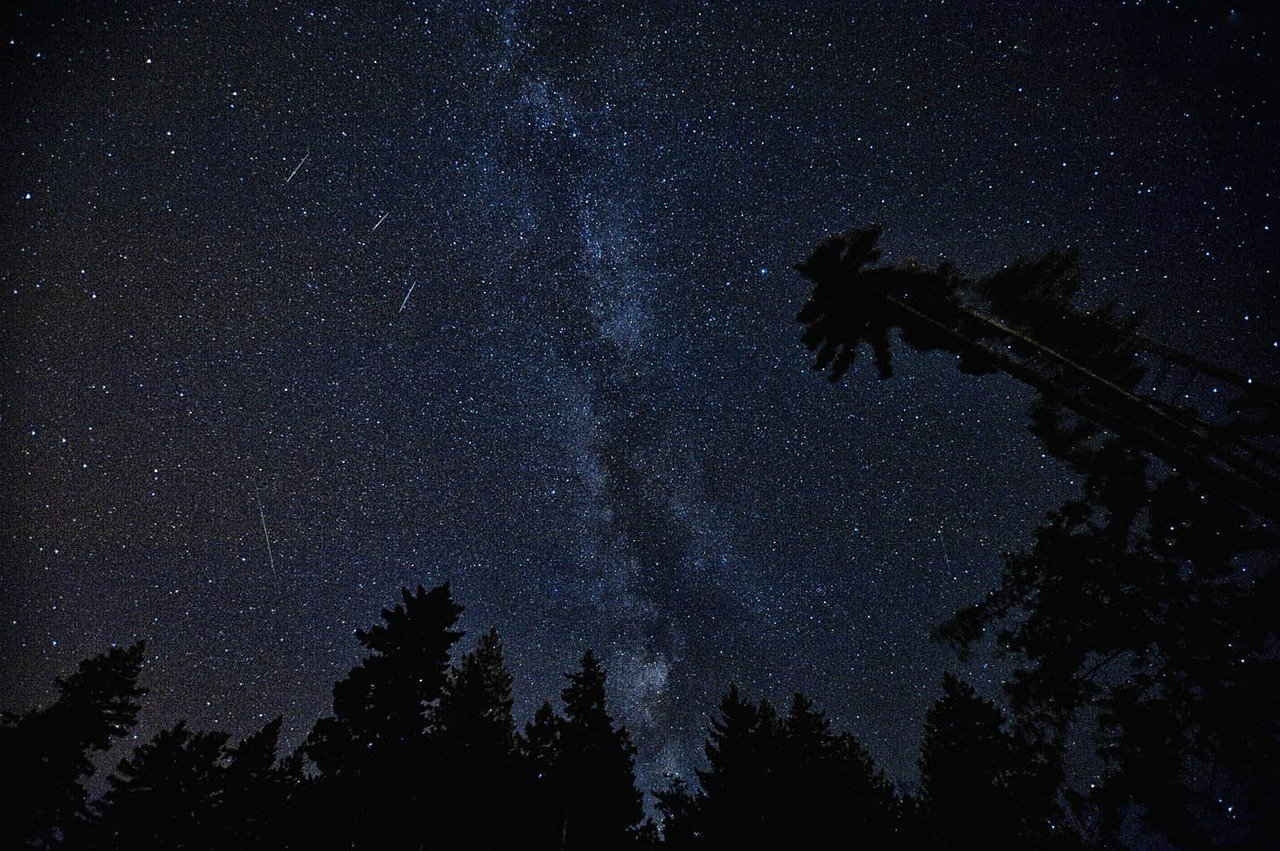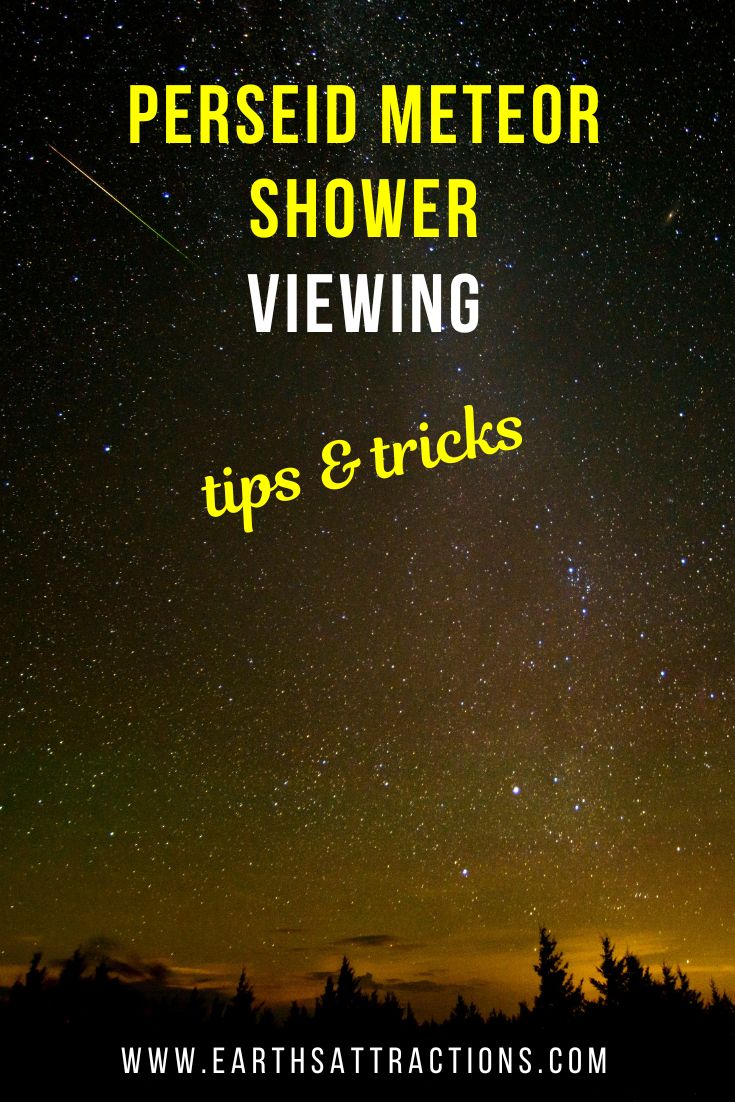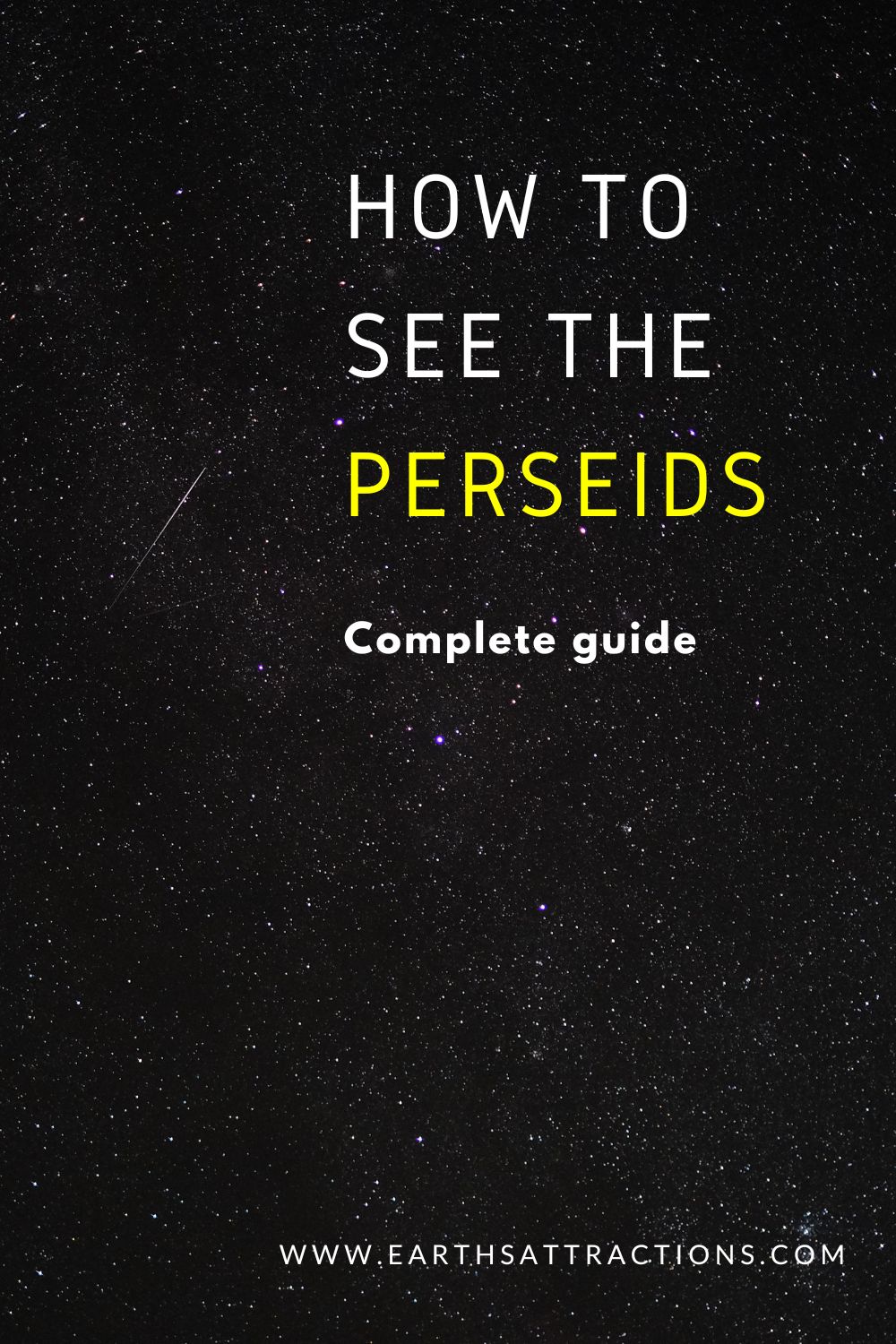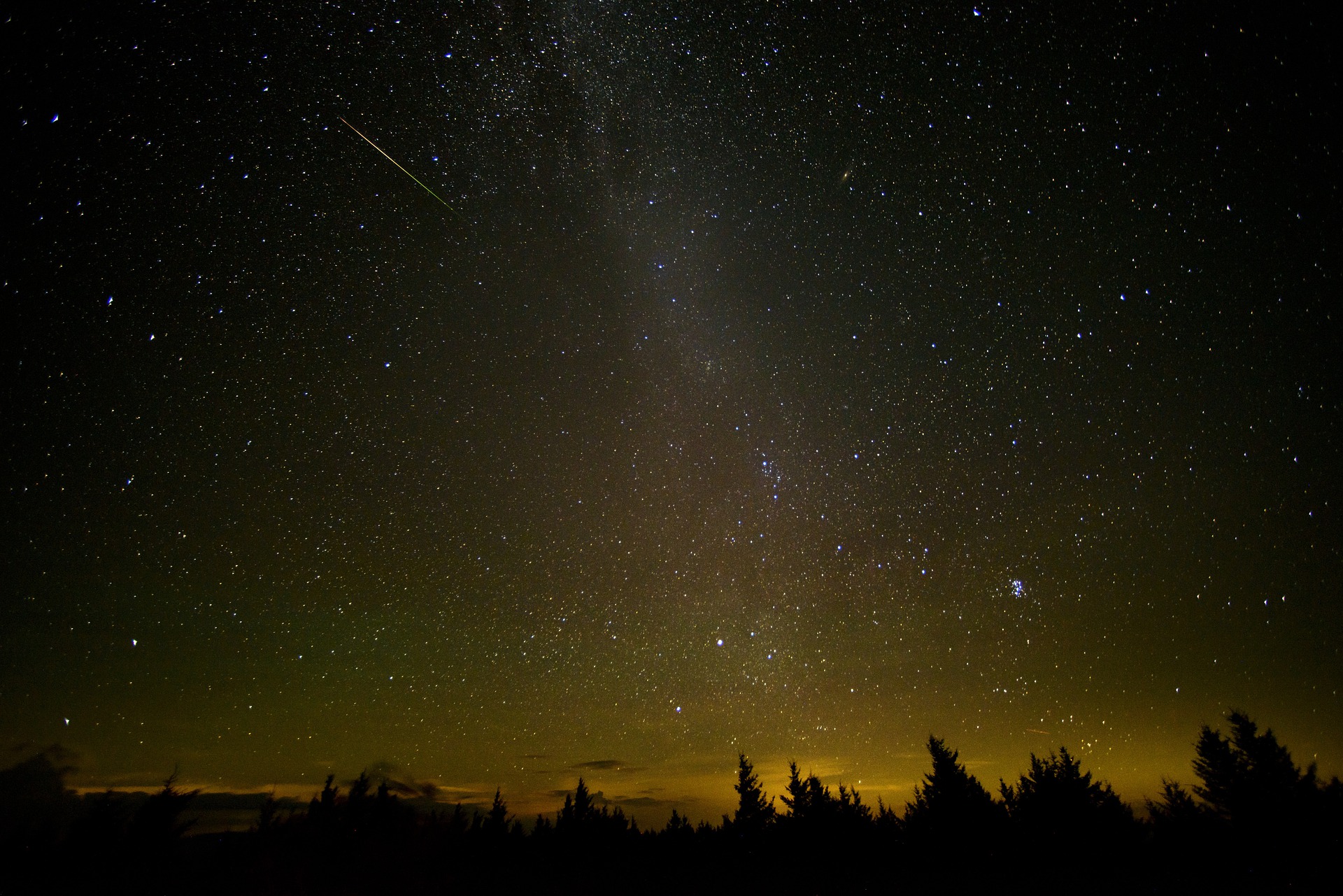
Complete Guide: Perseid meteor shower 2022 viewing tips – Earth’s Attractions
Based on my experience of the last few years viewing the Perseid meteor shower, I’m sharing in this article useful tips on how to watch the Perseid meteor shower 2022: guide to have an unforgettable experience every time watching a meteor shower.
Read this article to discover answers to important questions such as when to see the Perseid meteor shower, where to see the Perseid meteor shower, and useful Perseid meteor shower viewing tips! This is my complete guide to Perseids meteor shower 2022!

Seeing dozens of falling stars in a few hours is an amazing experience and the Perseid meteor shower makes this possible for everyone interested. Making a wish when seeing a falling star is one thing, but how about 50-100 (or more) wishes a night?
It’s an amazing experience, believe me, one that you too can easily have.
When to see the Perseids
The Perseid meteor shower can be seen between July 17th and August 26th.
Yes, during this entire time you can see falling stars! Isn’t it amazing?
When does the Perseid meteor shower peak?
While you can see falling stars during this entire time, there is a Perseid meteor shower peak.
So, the first element of this complete guide to Perseid meteor shower viewing is to find out when the most falling stars will be visible. For this, you can check your astronomical observatory’s site and discover the peak of the Perseids near you.
In 2022, the maximum of the meteor stream will be reached on the night of August 12 to 13 after 12:00 AM and until 5 AM..
This means there are three days – well, three nights actually – when the most falling stars will be visible. On the night of August 11 to 12 there is an upward slope of the current, reaching the maximum the following night, and on the night of August 13 to 14 there is a downward slope.
All these nights offer the opportunity to see many falling stars after midnight. Important to note is that in 2022 the moon is in its Full Moon phase, being bright and visible all night, which will make the number of visible falling stars to be smaller than in other years when the moon wasn’t as bright (full moon.)
Insider tip:
Choose 1-2 in which to go see the Perseids. Why?
Because on one night it can rain or be cloudy, so you won’t be able to see any falling stars.
But if you know that in advance, you can go the night before and enjoy the Perseids.
So check the weather in advance, when planning when to see the Perseids.
Choose a suitable place to see the meteor shower – Where can you see the Perseids
The Perseids are best viewed in the Northern Hemisphere and if you want to be able to see as many falling stars as possible it is important to choose a place with as little ambient light as possible.
It is best to go as far from the city as possible, between 35 and 60 km.
You can search online using Google Maps for a suitable place near your city. Avoid forests and areas with clumps of trees to maximise visibility. Choose a place away from water (thus avoiding areas with many mosquitoes.)
If you find a place to see falling stars that meets all the requirements and after you go there, you see that it is a perfect fit for meteor shower viewing, then mark it on your map – note the coordinates so that you can go there next year or you can recommend it to your friends, if they ask you for the best place to see the Perseid meteor shower tonight.
How to see the Perseid meteor shower if you don’t have a car
If you don’t have a car but want to see the Perseid meteor shower, I’m here to tell you that there are ways to do that.
The first option, if you don’t have a car, is to talk to friends who have a car and who might be interested in such an experience.
If they didn’t see a meteor shower in the past and don’t know the things to do to watch a meteor shower, then you can choose the tips from this guide to meteor shower viewing and help them plan the trip.
Making the experience as easy for them as possible may determine them to go see the meteor shower and take you with them.
Alternatively, you can check to see if there are places in your city that ensure good visibility – astronomical observatories, terraces (malls) that are open late especially to see the Perseids, etc.
What equipment do you need to see the Perseid meteor shower
The Perseids can be seen without any equipment. You don’t need the telescope or anything else.
The only thing that you need is a clear sky to look at.
You’ll see that some falling stars will be bigger and more visible than others. But they will all be visible with your eyes.
In fact, using a telescope or binoculars to see the Perseids will only limit the number of falling stars that you will see because you will only be able to look at a small portion of the sky instead of a bigger one you can cover without any instruments, just by using your eyes.
What you need to bring with you to watch the Perseid meteor shower and have an amazing experience
This guide to watching the Perseid meteor shower aims to be the only guide you need for a meteor shower viewing.
So the next step, after you choose the place and the perfect night to view the Perseids, is to pack the needed items in order to have the best time meteor shower viewing.
Bring an anti-insect spray / post stings spray. This is crucial, especially if you are allergic to insect stings.
So don’t leave home without these two products. Apply the anti-bug spray when you get to the chosen place for watching the meteor shower.
Use the itch relief spray – post-insect bites – only if you are stung. (hopefully, you won’t be!)
Bring water – As you will be far from the city, it is best to have some water with you. I can tell you from personal experience, that, at some point during the night, you’ll want to drink water.
Bring snacks – it’s no picnic, but you might be craving for something good. You can take some crackers or protein bars – something simple. I know friends who took popcorn with them.
Bring chairs – well, you don’t want to be standing for hours, correct? So make sure you bring some chairs.
Insider tip: as you’ll be watching the sky to see the Perseids, if you have, it is preferable to take some chairs with folding backs, which you can stretch out to look at the sky easily. If you don’t have some chairs, expect a bit of neck pain the next day – don’t worry, it will go away! (been there, done that:D)
What to wear when going to watch the Perseids tonight?
Now, obviously, it will depend from one person to another, but you have to keep in mind a few aspects when it comes to what to wear when you go to see the Perseid meteor shower.
I know, it’s summer, it’s very hot during the day, but at night it gets a bit colder. That is why it is a good idea to bring some warm clothes for the whole family.
Fatigue, combined with the colder weather, will give children chills almost instantly. Even though I brought warm clothes, my son got a bit chilly the first time we went to see the Perseid meteor shower so the next time – and every time since then – he packed extra warm clothes for himself. He brings a hat, a warm overall,s or a jacket.
As a note, make sure the entire family uses long trousers and tennis shoes – not sandals (insects). A jacket or a warm sweatshirt should be brought along.
Check the weather forecast in advance and see how many degrees it will be when you go to enjoy the falling stars and dress accordingly.
Extra items you can bring
In this guide to see the Perseids, I covered so far the necessary items to take with you when going to see the Perseid meteor shower.
If you take in consideration all the recommendations offered so far, you’ll have an extraordinary experience watching the meteor shower.
At the beginning of the article, I said that you don’t need any special equipment to see the Perseids. However, if you want to use the time to see what other planets or stars are visible the night you are going Perseid meteor shower viewing, then you can bring off your extra items with you.
If you are passionate about photography or astronomy, then you can also take a tripod and camera, binoculars, or telescope with you to see different stars or planets visible during this period.
You can also download an app that will let you know what stars, constellations, and planets are visible in the sky exactly where you are when you go to watch the Perseid meteor shower.
It’s a fun activity – especially if it’s not your first time seeing the Perseids and if you have some friends with you that are also passionate about astronomy.
We spoke about the best way to see the Perseid meteor shower, but exactly what are the Perseids?
Each year, when the Earth passes through the cloud of debris left by the comet Swift-Tuttle, tiny dust and particles from the tail of the comet enter the Earth’s atmosphere and we see falling stars.
This phenomenon is yearly, between mid to July and towards the end of August. This is actually great news because if one year is rainy and cloudy, then we can always try the next year to see the Perseid meteor shower.
The Perseids are famous because it’s easy to observe them – given that they are visible during the summer. There are also numerous falling stars at the peak of the Perseids, so they are hard to miss, and therefore fewer people will be disappointed about not seeing a falling star when they go to watch the Perseids.
Their name comes from the fact that the radiant – the point from which they appear to come – lies in the constellation Perseus – hence the Perseids.
So that’s it: what are the Perseids, the best time to view the Perseids, where to see the Perseids, and what do you need to bring with you when you go to watch the Perseids – all your Perseids questions answered plus multiple useful tips to make sure that you have an extraordinary experience seeing this meteor shower!
Enjoy the Perseids!



